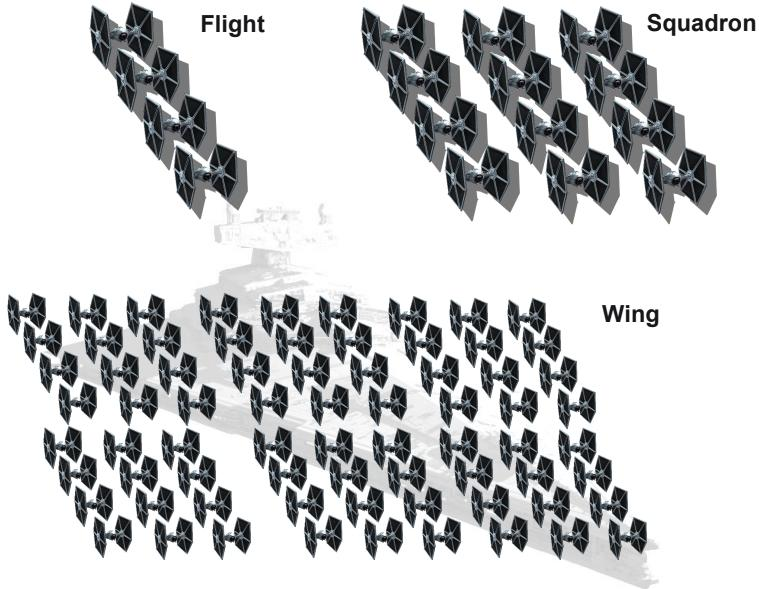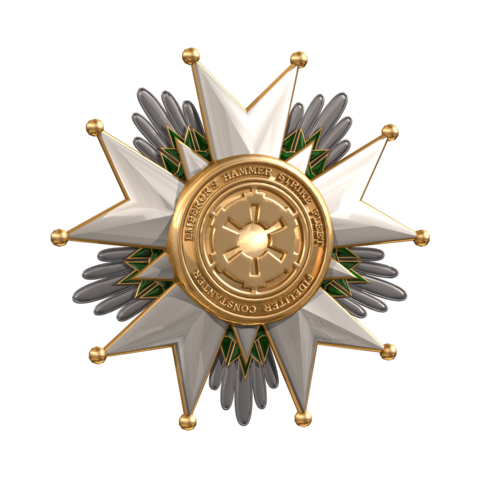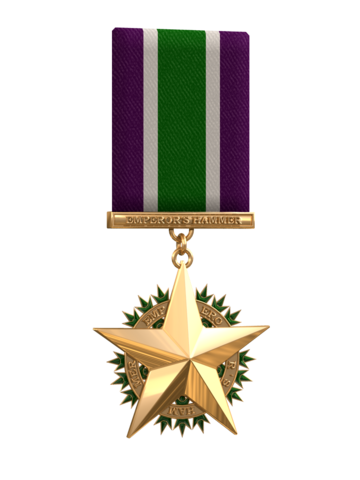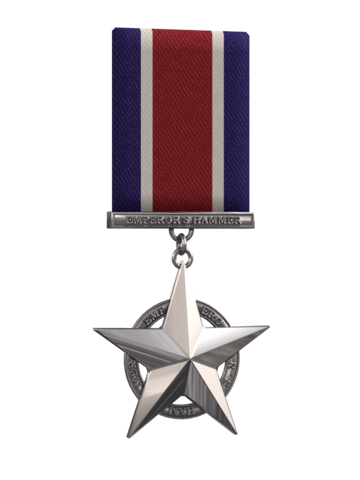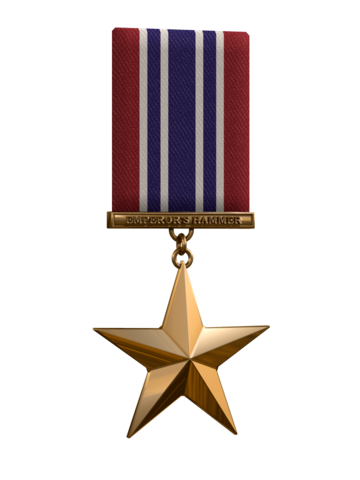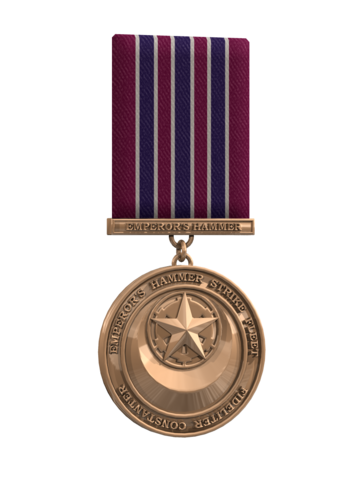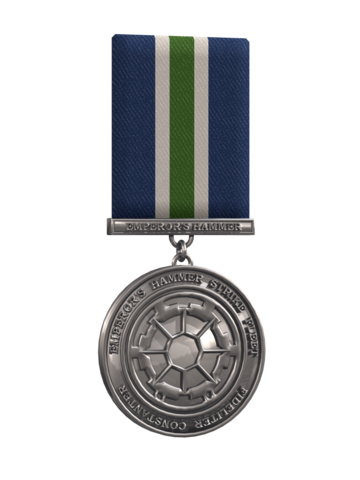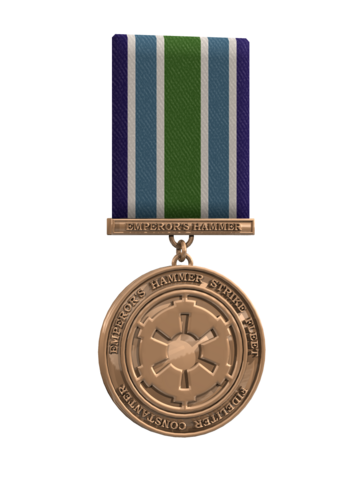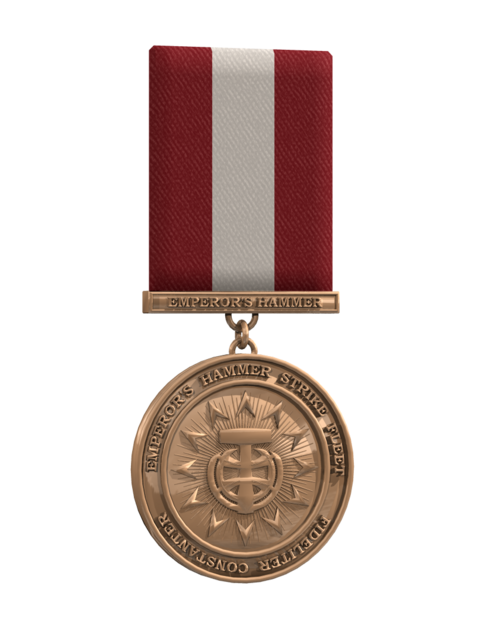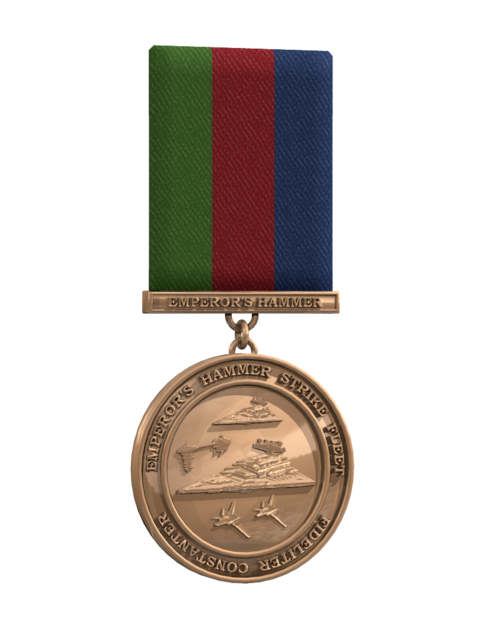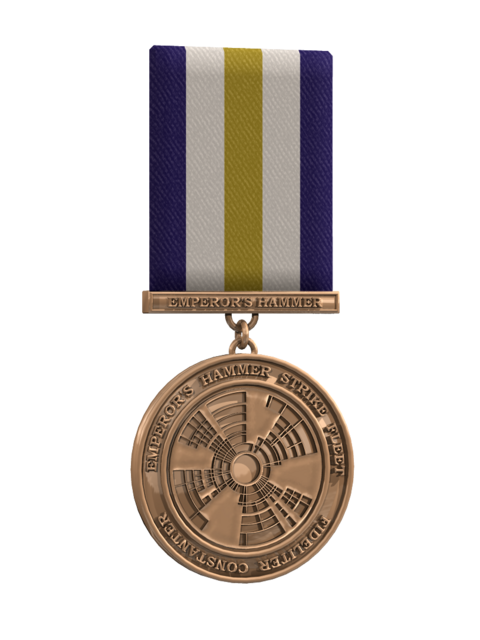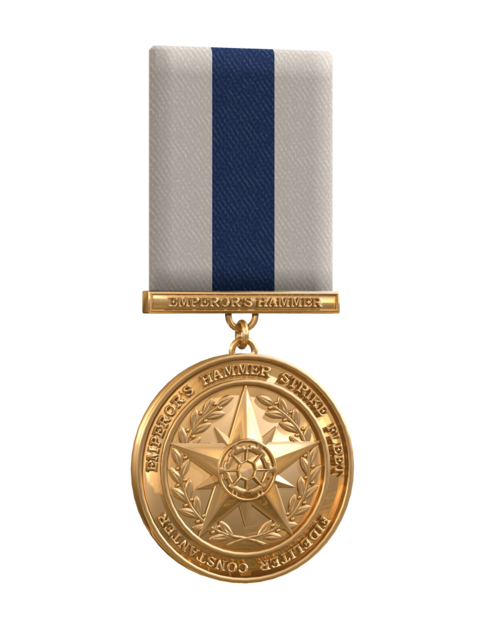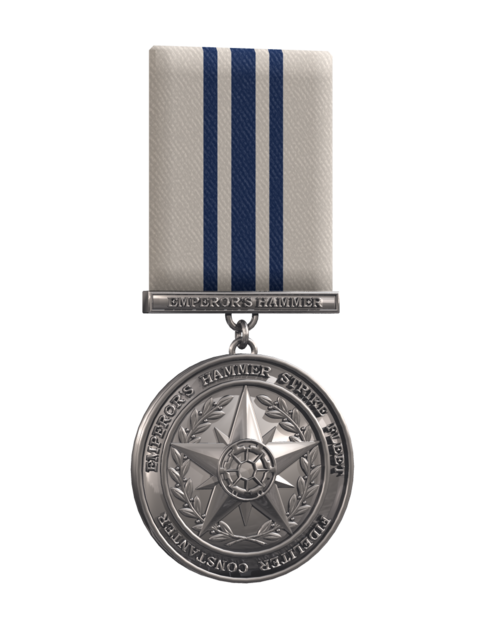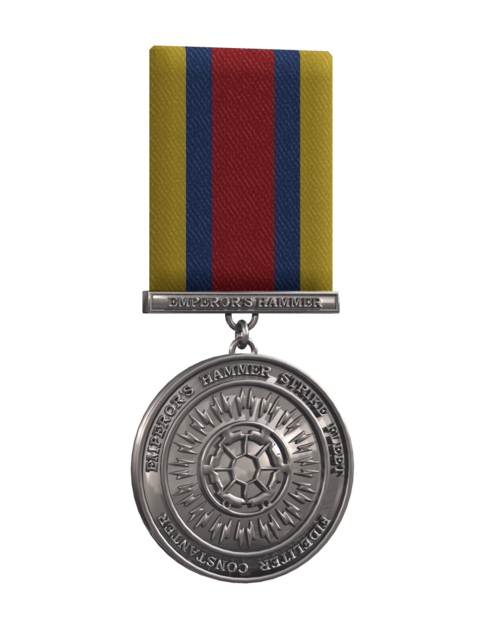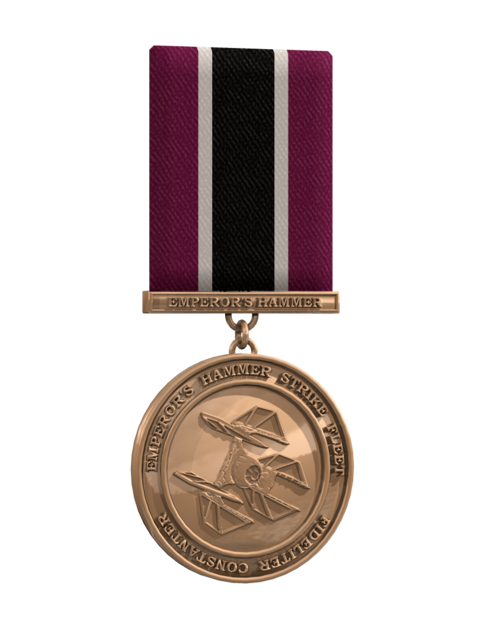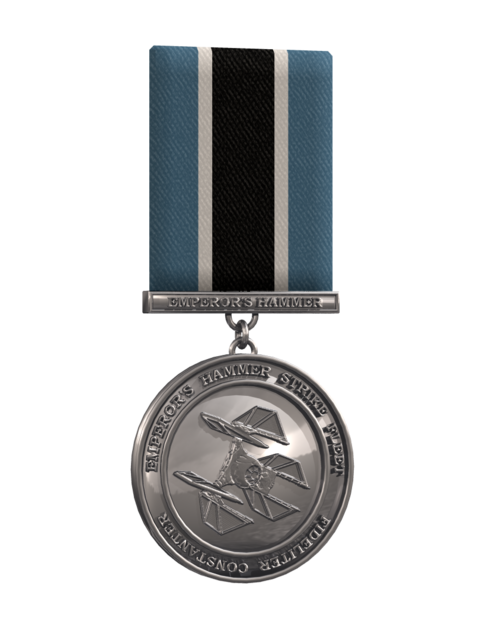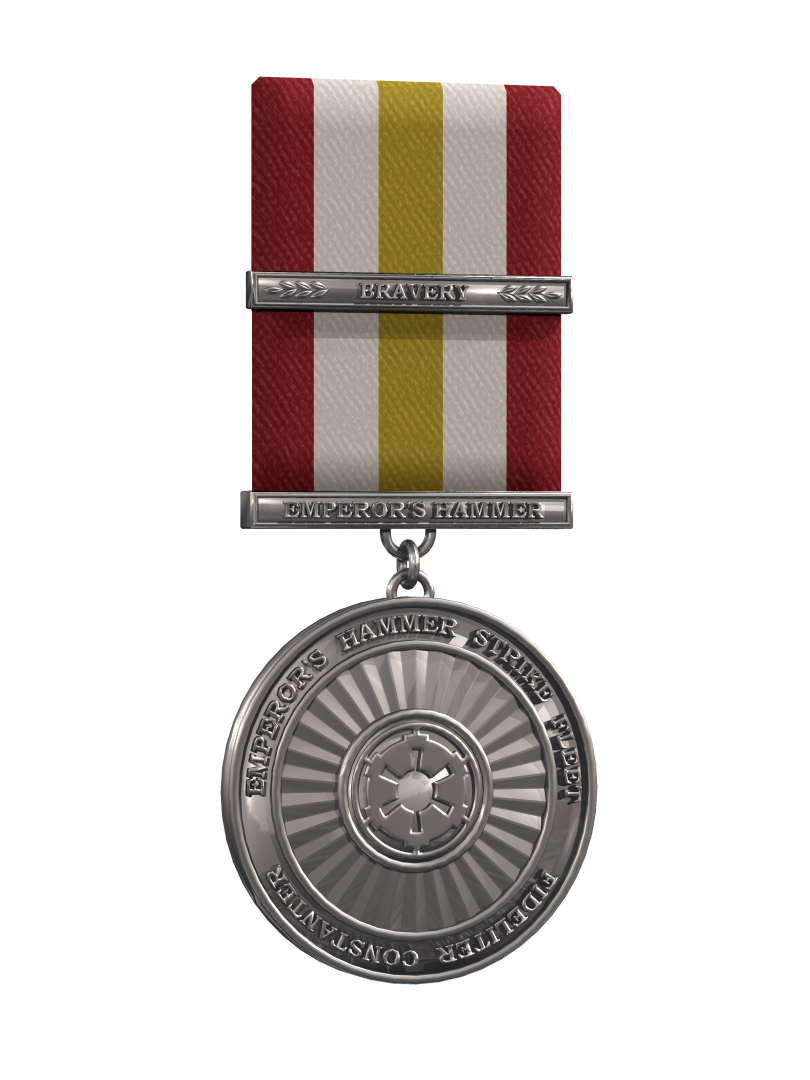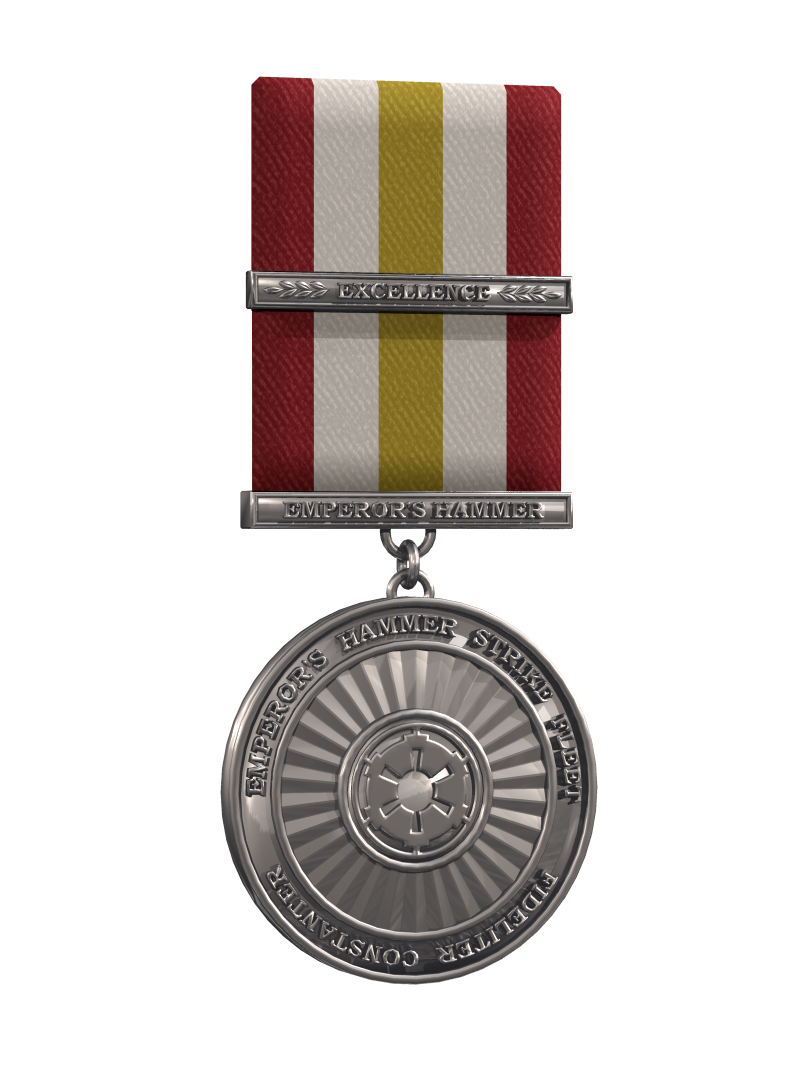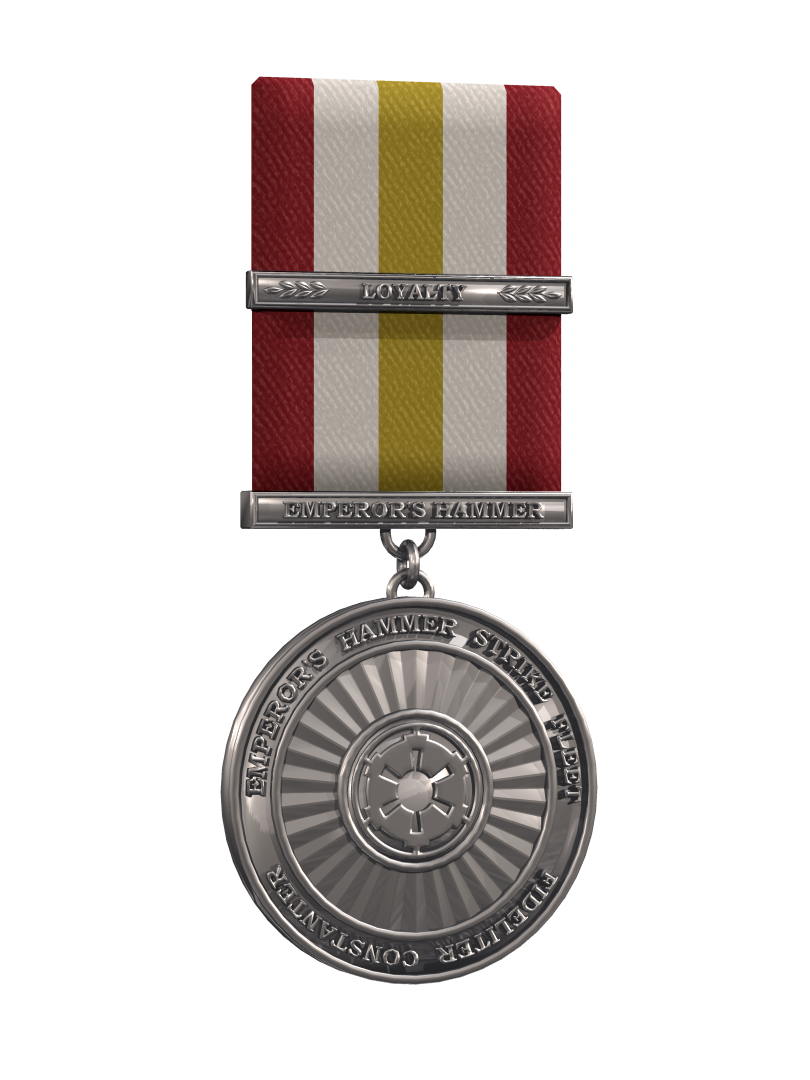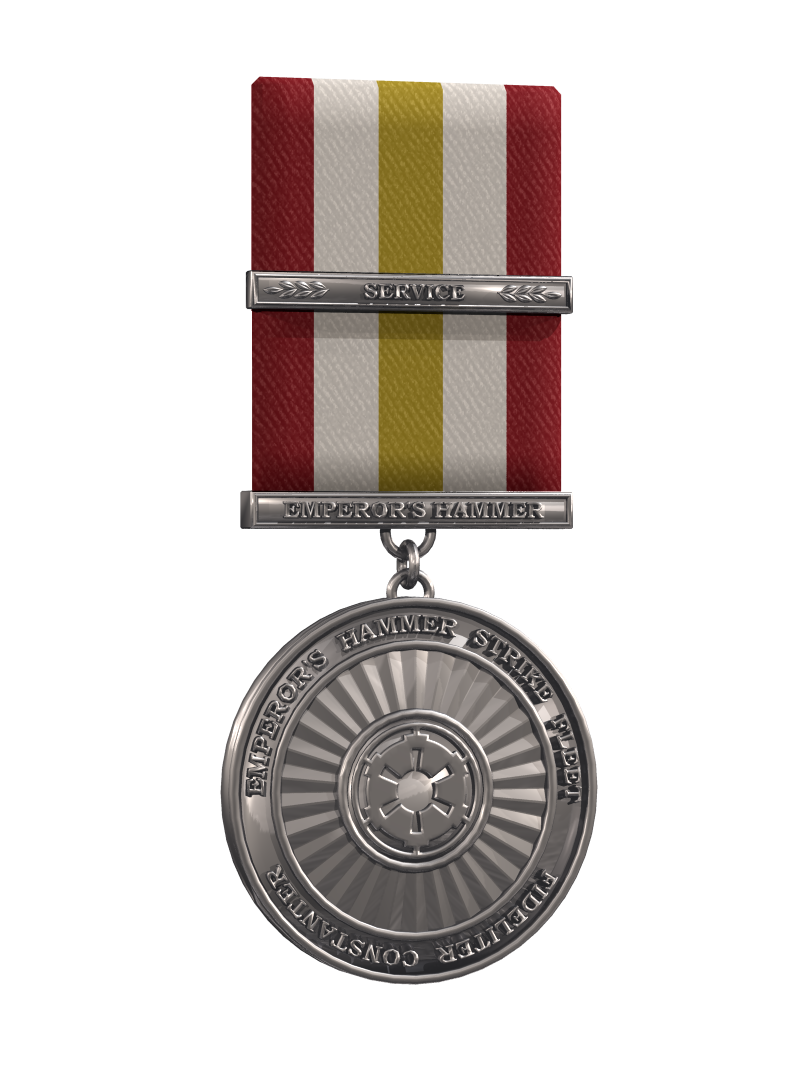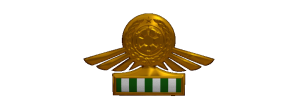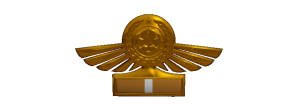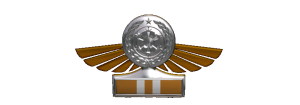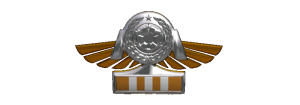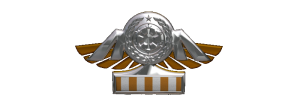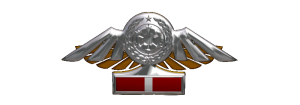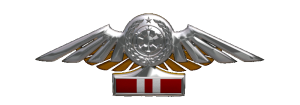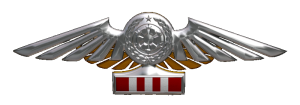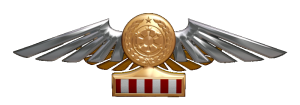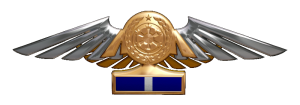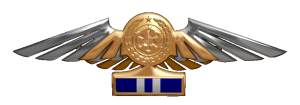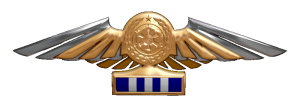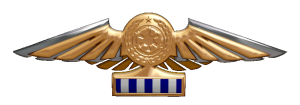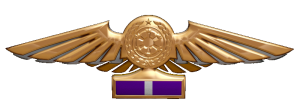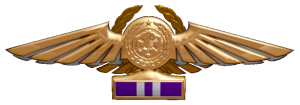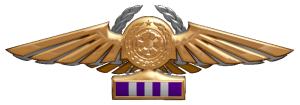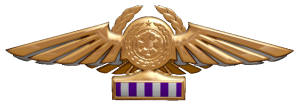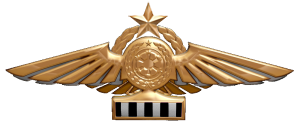TCCOM:TIE Corps Pilot Manual

|
| TIE Corps Pilot Manual | From the Office of the TIE Corps Commander | Last update: Plif (02/18/2023) |
TIE Corps Pilot Manual
|
Introduction
Welcome, pilot. Whether you are a trainee or a seasoned veteran, you’ll find everything that you need to know about the TIE Corps in this manual. Designed by pilots, for pilots, it is supposed to be the primary source of information for any TIE Corps member.
I hope that all of you will find this manual a useful source of information while also keeping in mind the only constant in life is change. Future decisions made by the Command Staff might lead to this document becoming outdated. When in doubt, communicate with the officers you report to via the chain of command.
New members, please note that you are required to be acquainted with this document and the supplementary documents referred to within it in order to be accepted in the fleet as an active member. If you have any questions, reach out to your immediate superior.
The most important thing to emphasize here is that the Emperor’s Hammer TIE Corps is a Star Wars gaming club. As such, one of its greatest aspects is the potential to meet and interact with fellow pilots who share a common interest while having fun with our favorite games.
The Command Staff and I wish you all a fun time with us here in the TIE Corps.
Regards,
High Admiral Plif, TIE Corps Commander
Chain of Command
The TIE Corps is a military dictatorship and, as such, it possesses a chain of command – a line of authority and responsibility along which orders are passed. A Flight Member is under a Flight Leader's authority, a Flight Leader is under a Squadron Commander's authority, and so on. It is also worth noting that a higher position's orders always override ones from a lower position – for example, a Commodore’s orders would supersede those of a Squadron Commander.
Ideally, questions should be resolved at the lowest level possible. As a FM, ask your FL or CMDR first. If they don’t have the answer, they’ll refer the question to their superior and so on up the chain until an answer is given or a decision is reached by the TCCOM.
Structure
The smallest unit in the TIE Corps is a flight, which consists of up to four pilots: a Flight Leader and up to three Flight Members. It is the smallest unit usually sent into battle, but it is not considered independent. Each flight has its own nickname and motto and all of its members are assigned the same type of starfighters.
A group of three flights makes a squadron. The leader of Flight I is in command of the squadron and is called the Squadron Commander (CMDR). The leader of Flight II is the second-in-command of the squadron and is called the Squadron Executive Officer (SQXO). A squadron may consist of up to twelve pilots and is the smallest unit considered independent.
A grouping of two to six squadrons is called a wing and is led by a Wing Commander. Currently, the Wing Commander positions are occupied exclusively by non-player characters, but they could be staffed by live members again should the need arise.
A wing is usually stationed aboard an Imperial II-class Star Destroyer of the Emperor's Hammer Strike Fleet. An ISDII and her escorts are collective known as a battlegroup (BG), and each battlegroup is commanded by a Battlegroup Commander who holds a flag rank.
Leading the TIE Corps is the TIE Corps Command Staff (TCCS), a group of three admirals that are in direct command of the entire TIE Corps. The TCCS consists of the TIE Corps Commander, the Strategic Operations Officer, and the Combat Operations Officer. The TIE Corps Commander is the highest authority in the entire TIE Corps and may be overruled only by the Fleet Commander of the Emperor's Hammer.
The TCCS plus the Battlegroup Commanders may be referred to as the TIE Corps Admiralty Board (TCAB) as a group of all of the admirals in the Corps.
The entire Emperor's Hammer Strike Fleet is under the authority of the Emperor's Hammer Command Staff, a group of admirals that are in direct control of various aspects of the entire organization.
Positions
This section describes the various positions available in the TIE Corps.
Line Positions
Trainee (TRN)
Position Description: Aspiring pilots who join the TIE Corps are initially given the rank of Cadet and the position of Trainee upon arrival on the Super Star Destroyer Avenger until they complete their training, during which they will learn the basic knowledge and skills necessary for service in the TIE Corps. Trainees are included in the roster count but cannot be awarded medals or promotions until they complete their training and are assigned to a squadron. Upon completing their training, a Trainee is promoted to Sub-Lieutenant and assigned to a squadron in a Flight Member position.
Rank: Cadet
Duties: Completing training
Contact Requirements: Low. At least once per month contact via email the TIE Corps Commander. However, they are encouraged to complete their training requirements as soon as possible so that they may be assigned to an active squadron.
Flight Member (FM)
Position Description: Flight Member is the most common role in the TIE Corps. Flight Members participate in competitions, post on message boards, talk with fellow members, play custom missions and multiplayer matches, and undertake other activities. In addition, Flight Members are encouraged to interact with their immediate superiors (Flight Leaders and/or Squadron Commanders) in regards to any questions or suggestions they may have.
Rank: Sub-Lieutenant on appointment, may be promoted up to Major
Duties: Being active, participating in TIE Corps activities
Contact Requirements: Low. At least once per month contact via email or other form of communication with immediate superior.
Flight Leader (FL)
Position Description: The Flight Leader serves as a team leader for the three Flight Members within the flight to which they're assigned.
Rank: Lieutenant on appointment, may be promoted up to Colonel
Duties: A Flight Leader should lead by example and be active
Contact Requirements: Low to moderate. A Flight Leader should stay in contact with their Squadron Commander and their flight. Response time should not exceed 72 hours.
Squadron Executive Officer (SQXO)
Position Description: The SQXO serves as the designated second-in-command of a squadron and performs any additional duties assigned by the CMDR.
Rank: No new rank upon appointment, may be promoted in line with primary position
Duties: Each CMDR may choose which duties, if any, to assign to their unit’s SQXO. Examples are listed below.
- Serving as the Acting CMDR while the CMDR is on leave
- Submitting squadron reports (preferably only occasionally)
- Contacting other FLs and FMs
- Running competitions
- Tracking squadron citation progress
Contact Requirements: Generally low, but might be needed more often depending on assigned duties
Squadron Commander (CMDR)
Position Description: A key position in the TIE Corps, the CMDR manages the day-to-day operations of the squadron. Because nearly all the members of the TIE Corps are assigned to a squadron, the CMDRs are critical to maintaining the line of communication across the chain of command.
Rank: Commander on appointment, may be promoted up to General.
Duties:
- Keeping in contact with the FLs and FMs under their command and answering any questions that arise
- Informing the squadron of news and important events
- Writing squadron reports
- Submitting Monthly Squadron Evaluations (MSE), which includes making medal and rank promotion recommendations
- Creating competitions for the squadron
- Being familiar with primary reference materials (TIE Corps Pilot Manual, Emperor's Hammer Training Manual, etc.)
Contact Requirements: Moderate. Answering emails, writing reports, and writing evaluations will take most of the CMDR’s time. A CMDR is also expected to maintain regular contact with their squadron and Commodore via email. Response time should not exceed 2 days.
Wing Commander (WC)
Position Description: The Wing Commander is in charge a wing of two to six squadrons. The WC positions are currently unstaffed and the duties below are fulfilled by the BGCOMs.
Rank: Major on appointment, may be promoted up to General
Duties:
- Overseeing daily operations of the wing
- Writing wing reports
- Reviewing monthly evaluations submitted by the CMDRs
- Staying in contact with the pilots in their wing, particularly the CMDRs
- Appointing CMDRs (usually with approval from the Commodore)
- Creating competitions for the wing
- Informing the wing of news and important events
- Being very familiar with primary reference materials (TIE Corps Pilot Manual, Emperor's Hammer Training Manual, etc.)
Contact Requirements: Moderate to high. The WC must keep in contact with the CMDRs in their wing and make sure the squadrons are active. In addition, the email load of a WC is rather heavy, with response times expected to be 24-48 hours.
Flag Positions
Commodore (COM)
Position Description: A Commodore commands a battlegroup’s flagship, usually an Imperial-class Star Destroyer, and all fighter squadrons assigned to that ship. The COM positions are currently unstaffed and the duties below are fulfilled by the BGCOMs.
Rank: Commodores must hold the rank of Rear Admiral or higher and may be promoted up to Admiral
Duties:
- Overseeing daily operations of the ship
- Reviewing monthly evaluations submitted by the WC and CMDRs
- Writing ship reports
- Staying in contact with the pilots assigned to their ship, particularly the WC and the CMDRs
- Creating competitions for the ship
- Informing the ship of news and important events
- Being completely familiar with primary reference materials (TIE Corps Pilot Manual, Emperor's Hammer Training Manual, etc.)
Contact Requirements: Heavy. The Commodore is expected to attend official meetings, communicate on Discord, etc. as often as possible. Response time should not exceed 24 hours.
Battlegroup Commander (BGCOM)
Position Description: A Battlegroup Commander commands a battlegroup of ships including at least one wing of active duty squadrons. They direct their battlegroup’s operations, both day-to-day and in battle.
Rank: Battlegroup Commanders must hold the rank of Rear Admiral or higher and may be promoted up to Fleet Admiral
Duties:
- Overseeing daily operations of the battlegroup
- Reviewing monthly evaluations submitted by the COMs, WCs, and CMDRs
- Writing battlegroup reports
- Staying in contact with the pilots assigned to their battlegroup, particularly the CMDRs
- Creating competitions for the battlegroup
- Informing the battlegroup of news and important events
- Being completely familiar with primary reference materials (TIE Corps Pilot Manual, Emperor's Hammer Training Manual, etc.)
Contact Requirements: Heavy. A BGCOM is expected to attend official meetings, communicate on Discord, etc. as often as possible. Response time should not exceed 24 hours.
TIE Corps Command Staff
Combat Operations Officer (COO/TC-3)
Position Description: The Combat Operations Officer oversees all multiplayer activities in the TIE Corps. The Combat Operations Officer's primary duties are coordination of multiplayer pilots, expanding multiplayer activities, and approving multiplayer-oriented awards.
Rank: Rear Admiral upon appointment, may be promoted up to Fleet Admiral
Duties:
- Writing reports
- Reviewing and approving multiplayer matches for all platforms
- Creating and coordinating multiplayer competitions and events
- Reviewing and approving competitions
Contact Requirements: Moderate to high. The COO will constantly receive message from pilots with match results for their events and other multiplayer-related inquiries.
Strategic Operations Officer (SOO/TC-2)
Position Description: The Strategic Operations Officer is primarily responsible for awarding medals and reviewing evaluations. The Strategic Operations Officer is also considered the second-in-command of the TIE Corps.
Rank: Rear Admiral upon appointment, may be promoted up to Fleet Admiral
Duties:
- Writing reports
- Reviewing the evaluations submitted by the CMDRs, WCs, and COMs
- Reviewing and approving medal recommendations
- Staying in contact with the pilots in the TIE Corps, particularly the COMs
Contact Requirements: High. The Strategic Operations Officer needs to maintain contact with the COMs and be ready to answer any question regarding the TIE Corps asked by members.
TIE Corps Commander (TCCOM/TC-1)
Position Description: The TIE Corps Commander is in overall command of the TIE Corps and reports directly to the Fleet Commander of the Emperor's Hammer Strike Fleet. He bears the ultimate responsibility for the TIE Corps. Aside from keeping a close eye on the general state of the TIE Corps, the TIE Corps Commander is responsible for roster updates and promotion requests. The TIE Corps Commander is also considered part of the Emperor's Hammer Command Staff as a Group Commanding Officer.
Rank: Admiral upon appointment, may be promoted up to High Admiral
Duties:
- Writing reports
- Overseeing the general state of TIE Corps
- Maintaining the online roster
- Maintaining the TIE Corps Pilot Manual
- Reviewing and approving promotion requests
- Reviewing and approving uniform submissions
- Coordinating and managing the SOO and COO
Contact Requirements: High. The TIE Corps Commander must be always aware about the state of the TIE Corps and be ready to support the SOO and COO when needed.
Assistants and Other Secondary Positions
Because the positions of the TIE Corps Command Staff and Emperor's Hammer Command Staff involve highly sensitive and extensive duties, each member of the TCCS and EHCS may appoint Assistants. An Assistant shall remain in their previous position on the roster and perform their usual role, however he will be expected to support the TCCS member in fulfilling some of their duties. Although this shall require more effort from the Assistant than if he would be a typical member, Assistants have more activity to note in evaluations and often receive additional or higher merit medals than they would have received otherwise.
The position of Assistant is signified by an appropriate addition in the ID line, in the position's section. The addition takes the form of 'XXA', where XX is the abbreviation for the officer you are assisting. For example a Squadron Commander who is also a COO Assistant would start their ID line with 'CMDR-COOA', where COOA indicates the Assistant position.
There are also several other secondary positions like the Tactician (TCT) and Tactical Surveyors (TCS). The only difference that separates those positions from that of the Assistant is that their duties are more specific than those of the Assistant.
Warden of the Imperial Archives (WARD)
Position Description: The Warden is responsible for championing fiction, writing and related non-flight activity within the TC Rank: No new rank upon appointment, may be promoted in line with primary position.
Duties:
- Supports and encourages fiction and related non-flight activity with the creation of competitions and other activities
- Uploads submitted fiction and graphics to their creator's profile
- Other duties assigned by the TCCS as needed
Contact Requirements: Moderate to High. A Warden will be expected to lead by example and provide a useful source of guidance or information to any pilot.
Editor of the TC Newsletter (EDR)
Position Description: The Editor of the TC Newsletter compiles submissions and publishes the TIE Corps newsletter, currently called The Commodore
Rank: No new rank upon appointment, may be promoted in line with primary position
Duties:
- Accepts submissions for the newsletter
- Actively looks for works that have been created but not specifically submitted for the newsletter, communicates with those creators about their works as needed
- Uploads any needed materials to tc.emperorshammer.org/commodore/
- Creates the newsletter through HTML coding, word processing, etc.
- Sets a schedule for the publication of newsletters
- Submits a list of needed Letter of Achievement awards to the TCCS after the publication of a newsletter
Contact Requirements: Low, mostly coordinating submissions for the newsletter.
Simulations Officer (SIMS)
Position Description: The Simulations Officer runs Imperial Storm events and performs related duties
Rank: No new rank upon appointment, may be promoted in line with primary position
Duties:
- Maintains and publishes the rules for Imperial Storm
- Works with the TCCS on scheduling Imperial Storm events
- Acts as the primary contact for inquiries related to Imperial Storm
- Provides the coordination needed to run an Imperial Storm event
- Creates and maintains the Imperial Storm website (currently imperialstorm.emperorshammer.org)
Contact Requirements: Low most of the time, High when actively running an Imperial Storm event.
Captain of the M/FRG Phoenix (CAPT)
Position Description: The CAPT reaches out to the members of the Reserves regularly and coordinates with the TCCOM concerning assignments
Rank: No new rank upon appointment, may be promoted in line with primary position
Duties:
- Emails the Reserves on a regular basis, normally quarterly
- Handles any questions from the Reservists about the Corps’ current operations
- Refers Reservists to the TCCOM if they’d like to return to active duty
- Relays any bouncing email addresses to the TCCOM, not having a valid email address on file would lead to an AWOL declaration
Contact Requirements: Low, mostly confined to an active round of emailing the Reservists
Tour of Duty
A Tour of Duty is currently defined as four months of continuous, active service. When needed, a Tour of Duty will be reviewed and considered completed if an officer fulfilled their duties during that time frame. A Tour of Duty will be considered incomplete if an officer was absent for some of that time or did not fulfill the duties of their position.
Reserves
The TIE Corps Reserves, based on the Modified Frigate Phoenix, is where pilots are assigned when they’ve temporarily or permanently resigned from active duty. Reserve pilots have no duties besides maintaining an active email address for occasional contact from the CAPT or the TCCS.
A Reservist will hold the last rank they have had before transferring and all of their data will remain stored in the TIE Corps database. Reservists are removed from the TIE Corps mailing list but retain access to most of the Discord server. Former admirals that transfer to the Reserves from a line position are returned to their flag rank as long as they completed at least one Tour of Duty as an admiral.
Cadets may not join the Reserves. A pilot must have completed IWATS training and hold the rank of at least Sub-Lieutenant to be eligible for Reserves assignment.
Ranks
Although a member’s overall status within the Fleet will be entirely determined by their position, the military ranks presented below further stratify the TIE Corps and give something for members to strive for. The position of a member will always take precedence over conflicting ranks (e.g., a Flight Leader who is a Lieutenant Colonel does not outrank a Squadron Commander who is a Captain). A member may retain a rank achieved in a previous assignment to a higher command position even if their current position does not warrant a promotion to that rank.
Flag ranks may not be held in line positions (i.e., FM, FL, SQXO, CMDR, and WC). Former admirals that are assigned to line positions will be granted the rank of Colonel regardless of their line rank before assignment to an admiral position as long as they completed a full Tour of Duty in their admiralty role. The exception for this rule is applied to members that achieved the rank of General before the admiralty appointment, in which case they will be returned to the rank of General.
Line Ranks
Flag Ranks
Promotions
Although the entire Chain of Command in the TIE Corps is based on positions and not ranks, the possibility of attaining new 'bars' has been a motivation for many generations of TIE Corps pilots to go above and beyond the minimum requirements of a pilot. The following section deals with various issues regarding the promotions – the procedure itself is discussed in section VIII. Procedures.
Promotional Authority
Promotion recommendations usually come from the officer immediately above the recommended member in the Chain of Command. For example, promotion requests for FMs, FLs, and SQXOs will normally be made by their CMDR. All promotion requests must receive the approval of the TCCOM or the SOO. Promotion requests for the TCCOM must be approved by the FC.
Position Requirements
| Position | Minimum rank | Maximum rank |
|---|---|---|
| TIE Corps Commander (TCCOM) | Admiral (AD) | High Admiral (HA) |
| Strategic Operations Officer (SOO) | Rear Admiral (RA) | Fleet Admiral (FA) |
| Combat Operations Officer (COO) | Rear Admiral (RA) | Fleet Admiral (FA) |
| Battlegroup Commander (BGCOM) | Rear Admiral (RA) | Fleet Admiral (FA) |
| Commodore (COM) | Rear Admiral (RA) | Admiral (AD) |
| Wing Commander (WC) | Major (MAJ) | General (GN) |
| Squadron Commander (CMDR) | Commander (CM) | General (GN) |
| Squadron Executive Officer (SQXO) | Lieutenant (LT) | Colonel (COL) |
| Flight Leader (FL) | Lieutenant (LT) | Colonel (COL) |
| Flight Member (FM) | Sub-Lieutenant (SL) | Major (MAJ) |
While a pilot may be promoted by several ranks in the case of an appointment to a position (for example a Lieutenant getting appointed as a Squadron Commander and thus elevated to the rank of Commander, omitting the rank of Lieutenant Commander), it will not be a permanent promotion until the pilot completes at least one Tour of Duty in their new position or they receive another promotion. If at least one Tour of Duty is not completed, their rank will revert to the one they held prior to their promotion. This does not affect pilots that did not receive a rank promotion in conjunction with their new assignment.
As previously mentioned, a member may retain a rank achieved in a previous assignment to a higher command position even if their current position does not warrant a promotion to that rank. For example, if a Wing Commander that has attained the rank of General wishes to retire and become a Flight Member, they would retain the rank of General.
Admirals that return to a line position from an admiralty position will be given the rank of Colonel without regard for their rank before becoming an admiral as long as they successfully completed at least one Tour of Duty in their admiralty position. The only exception is a situation when an admiral held the rank of General before being appointed to an admiralty position, in which case the pilot would be returned to the rank of General.
Rank Requirements
All promotions will be reviewed on a case-to-case basis. The following presents a listing of the ranks, minimum time served in previous rank and current position (if applicable) and services typically required prior to promotions in the TIE Corps.
Note: Just serving the minimum time-in-rank doesn’t automatically entitle a pilot to a rank promotion. Promotions are subject to approval by the pilot’s chain of command, and meeting minimum standards for one’s position is normally required for a promotion to be approved. Questions about promotions should be raised with the pilot’s immediate superior, who can escalate through the chain of command as needed.
| Rank | Time in previous rank | Typical position(s) |
|---|---|---|
| High Admiral (HA) | Fleet Commander’s Discretion | TIE Corps Commander (TCCOM) |
| Fleet Admiral (FA) | Fleet Commander’s Discretion (TCCOM) 7 months (SOO, COO) 12 months (BGCOM) |
TIE Corps Commander (TCCOM) Strategic Operations Officer (SOO) Combat Operations Officer (COO) Battlegroup Commander (BGCOM) |
| Admiral (AD) | 6 months (SOO, COO) 9 months (BGCOM, COM) |
TIE Corps Commander (TCCOM) Strategic Operations Officer (SOO) Combat Operations Officer (COO) Battlegroup Commander (BGCOM) Commodore (COM) |
| Vice Admiral (VA) | 5 months (SOO, COO) 7 months (BGCOM, COM) |
Strategic Operations Officer (SOO) Combat Operations Officer (COO) Battlegroup Commander (BGCOM) Commodore (COM) |
| Rear Admiral (RA) | Appointment | Strategic Operations Officer (SOO) Combat Operations Officer (COO) Battlegroup Commander (BGCOM) Commodore (COM) |
| General (GN) | 4 months (WC) 8 months (CMDR) |
Wing Commander (WC) Squadron Commander (CMDR) |
| Colonel (COL) | 3 months (WC) 6 months (CMDR) 12 months (SQXO, FL) |
Wing Commander (WC) Squadron Commander (CMDR) Squadron Executive Officer(SQXO) Flight Leader (FL) |
| Lieutenant Colonel (LC) | 2 months (WC) 4 months (CMDR) 10 months (SQXO, FL) |
Wing Commander (WC) Squadron Commander (CMDR) Squadron Executive Officer(SQXO) Flight Leader (FL) |
| Major (MAJ) | Appointment (WC) 2 months (CMDR) 8 months (SQXO, FL) 10 months (FM) |
Wing Commander (WC) Squadron Commander (CMDR) Squadron Executive Officer(SQXO) Flight Leader (FL) Flight Member (FM) |
| Captain (CPT) | 2 months (CMDR) 4 months (SQXO, FL) 6 months (FM) |
Squadron Commander (CMDR) Squadron Executive Officer(SQXO) Flight Leader (FL) Flight Member (FM) |
| Commander (CM) | Appointment (CMDR) 3 months (SQXO, FL) 4 months (FM) |
Squadron Commander (CMDR) Squadron Executive Officer(SQXO) Flight Leader (FL) Flight Member (FM) |
| Lieutenant Commander (LCM) | 1 month (SQXO, FL) 2 months (FM) Completion of TCCORE |
Squadron Executive Officer(SQXO) Flight Leader (FL) Flight Member (FM) |
| Lieutenant (LT) | Completing one approved activity (FM) | Flight Member (FM) |
| Cadet (CT) | Enlistment | Trainee (TRN) |
Promotion to LT
A Sub-Lieutenant earns their promotion to full Lieutenant by completing any of the following tasks:
- Completing an Emperor’s Hammer battle or free mission for X-Wing, TIE Fighter, X-Wing versus TIE Fighter, or X-Wing Alliance
- Earning an Iron Star, Operational Readiness Award, Legion of Combat, Legion of Skirmish, Medal of Tactics, or Commendation of Service
- Submitting a piece of fiction or a graphic to the Warden of the Imperial Archives (WARD)
- Submitting a complete Imperial Navy Pilot Record (INPR)
- Completing any Imperial University (IU) course
TIE Corps Core
The completion of TIE Corps Core (TCCORE) is required for promotion to LCM. TCCORE introduces pilots to our structure, ranks, positions, and other basic knowledge. Most of that information is also here in the Pilot Manual, but the course features a test that confirms the pilot’s understanding.
Awards
Members of the TIE Corps may be recognized with the following awards depending on the level and significance of their work. All award recommendations are reviewed and approved by the Strategic Operations Officer unless the recommendation comes from the TIE Corps Commander, Executive Officer, or Fleet Commander, in which case those officers may approve the award themselves.
There are three types of medals that a member can earn while in the service of the Emperor’s Hammer: Merit Awards, Service Awards, and Commendations.
Merit Awards
Service Awards
Commendations
Procedures
Even though a great many recommendations and requests are made through the database, it is necessary to follow certain procedures to avoid any problems and confusion as well as to maintain order throughout TIE Corps ranks.
Appointments
Appointment procedures are fairly simple. First, the pilot applying for a given position must send in an application to the officer in charge, as specified in the application requirements. All applications are then reviewed by this officer and their superiors, and afterwards a request is sent to the Strategic Operations Officer and TIE Corps Commander to appoint the member to a given position. This may be carried out through whichever communications platform is desired.
Transfers
During a pilot's career in the TIE Corps, they might find themselves in need of a transfer to another unit. Most of the transfers connected with appointments and restructures are performed by the TCCOM without the need for any input from the pilot. Transfers between units, though, should be initiated by the pilot so that there’s no question that the pilot wants to be transferred.
To request a transfer, contact the TCCOM. The TCCOM will then seek out all the needed acknowledgements and approvals before moving forward.
Promotions and Awards
Although all promotions and awards are handled through the use of the database, it is recommended that they should be discussed with superior officers before filling in an official recommendation. A good moment for such a discussion is during the period of handing in and reviewing monthly evaluations, so that the promotion and medal requests may be considered by either the Wing Commander/Commodore and the Strategic OperationsOfficer/TIE Corps Commander. This is done to ensure that all recommendations are properly discussed by the chain of command and also to minimize the number of promotions and medal denials in the database.
Creating Competitions
Anyone in the Corps may submit a competition through the form in the database (Submit a new competition to the TCCOM), which is sent to the COO for review before being posted as an active competition in the Competitions Center. If they are not a CMDR or above, though, they would need someone else to submit the medal recommendations for any awards earned by participants in the competition.
Squadron Citations
A squadron possessing at least six members will be credited for any battle that at least half of the present members have completed, thus earning a Squadron Citation. The citations achieved by a squadron can be viewed on the Squadron Battleboards on the TIE Corps site.
Titles
Command officers may bestow titles like “Wing Commander's Own”, “Pilot of the Week”, etc., to various members and units of the TIE Corps. Such a title should be considered permanent unless stated otherwise by the officer bestowing the given title and may be used below the ID line of a member. The naming of the titles and requirements for achieving them are left up to the creator to determine, though these will generally be reviewed by the TCCOM as part of a competition.
Absent Without Leave (AWOL)
Pilots should communicate with their immediate superior at least once every 30 days. Not doing so could lead to the pilot being declared AWOL and being removed from their active duty assignment. It’s expected that the superior officer will proactively reach out to the pilot as opposed to simply looking back and seeing that the pilot hasn’t communicated with them in the last 30 days. An AWOL declaration is subject to approval from the chain of command before being actioned.
Pilots that are declared AWOL are not moved to the Reserves. They are tagged as [Inactive] in the database, may not log in, are not assigned to the M/FRG Phoenix or any other unit, are removed from the TIE Corps mailing list, and are removed from all Discord roles. Inactive pilots may contact the TCCOM to be assigned to the Reserves or be returned to active duty.
Activity Expectation
If a FM or FL hasn’t been active for two consecutive months, the CMDR may ask for that pilot to be transferred to the Reserves. A FM or FL should be doing more than just communicating with the CMDR once in a while, it’s expected that the pilot should be flying missions, participating in competitions, working on Wiki articles, taking IU courses, writing fiction, creating graphics, or showing an effort in some other way that shows a contribution to the Corps. Sometimes pilots lose track of how long it's been since they've been an active part of their squadrons, and the goal of this process is to allow the CMDR to make the call in situations where the pilot doesn't have time for us but doesn’t request to be transferred to the Reserves. A request to transfer a pilot to the Reserves is subject to approval from the chain of command before being actioned.
File Submission
Most TIE Corps competitions are run over a set amount of time. Using the clock to one’s advantage by saving up submissions and turning them in during the last day or two of a competition is known as “hoarding”, considered bad sportsmanship, and may result in disqualification from the competition. Files should be submitted within 72 hours of their creation or completion. If this cannot be avoided, the pilot should communicate with the officer running the competition so that an exception can be considered.
Flight Certification Wings
Shown on the pilot’s profile and their dress uniform, the Flight Certification Wings (FCW) reflect the pilot’s combat experience.
Point values for the activities that contribute to a pilot’s wings:
- 1 point for each single player mission flown
- 2 points for each mission high score
- 2 points for each mission in the battle for each battle high score
- 1 point for each Legion of Combat
- 1 point for each Legion of Skirmish
- 10 points for each Iron Star with Copper Wings
- 12 points for each Iron Star with Bronze Wings
- 14 points for each Iron Star with Silver Wings
- 16 points for each Iron Star with Gold Wings
- 18 points for each Distinguished Flying Cross
- 20 points for each Iron Star with Platinum Wings
Fleet Commander's Honor Guard
The Fleet Commander's Honor Guard (FCHG) is a special ranking system that ranks pilots in the TIE Corps by single player combat activity and performance using a point system:
- Grenadier – 10 points
- Lancer – 25 points
- Hussar – 50 points
- Fusilier – 75 points
- Dragoon – 100 points
- Cavalier – 150 points
- Gallant – 200 points
- Knight – 250 points
- Paladin – 300 points
- Legionnaire – 400 points
- Aquilifer – 500 points
- Decurion – 750 points
- Tesserarius – 1000 points
- Optio – 1250 points
- Centurion – 1500 points
- Executor – 2000 points
- Gladiator – 2500 points
- Archon – 3000 points
- Templar – 3500 points
- Imperator – 4000 points
Points are awarded for the following flight activity:
- every mission flown – 1 point
- every mission high score – 2 points
- every battle high score – 2 points times the number of missions in the battle
The list of pilots that hold each FCHG rank can be found on this listing on the TIE Corps site.
Additionally, the TCCOM awards merit medals to pilots that have reached certain FCHG ranks:
- Dragoon – 100 points – Imperial Security Medal
- Knight – 250 points – Palpatine Crescent
- Aquilifer – 500 points – Bronze Star of the Empire
- Executor – 2000 points – Silver Star of the Empire
- Imperator – 4000 points – Gold Star of the Empire
PvP Combat Rating
The PvP Combat Rating is a special ranking system, similar to Fleet Commander's Honor Guard (FCHG), which rates pilots and officers in the TIE Corps by multiplayer player vs. player (PvP) combat activity and performance using a point system:
- Trainee – 1 point
- Certified – 10 points
- Marksman 4th – 25 points
- Marksman 3rd – 50 points
- Marksman 2nd – 75 points
- Marksman 1st – 100 points
- Officer 4th – 150 points
- Officer 3rd – 200 points
- Officer 2nd – 250 points
- Officer 1st – 300 points
- Veteran 4th – 375 points
- Veteran 3rd – 450 points
- Veteran 2nd – 525 points
- Veteran 1st – 600 points
- Elite 4th – 700 points
- Elite 3rd – 800 points
- Elite 2nd – 900 points
- Elite 1st – 1000 points
- Ace 4th – 1250 points
- Ace 3rd – 1500 points
- Ace 2nd – 1750 points
- Ace 1st – 2000 points
- Top Ace 4th – 2500 points
- Top Ace 3rd – 3000 points
- Top Ace 2nd – 3500 points
- Top Ace 1st – 4000 points
- Tan – 5000 points
Points are awarded for the following flight activity:
- every Legion of Combat earned – 1 point
- every Distinguished Flying Cross earned – 5 points
The list of pilots that hold each Combat Rating can be found on this listing on the TIE Corps site.
Additionally, the COO awards merit medals to pilots that have reached certain combat ratings:
- Marksman 1st – 100 points – Imperial Security Medal
- Officer 1st – 300 points – Palpatine Crescent
- Veteran 1st – 600 points – Bronze Star of the Empire
- Ace 1st – 2000 points – Silver Star of the Empire
- Tan – 5000 points – Gold Star of the Empire
Co-Op Combat Rating
The Co-Op Combat Rating is a special ranking system, similar to Fleet Commander's Honor Guard (FCHG), which rates pilots and officers in the TIE Corps by multiplayer player vs. environment (PvE) combat activity and performance using a point system:
- Beginner – 1 point
- Qualified – 10 points
- Private 4th – 25 points
- Private 3rd – 50 points
- Private 2nd – 75 points
- Private 1st – 100 points
- Gunner’s Mate 4th – 150 points
- Gunner’s Mate 3rd – 200 points
- Gunner’s Mate 2nd – 250 points
- Gunner’s Mate 1st – 300 points
- Campaigner 4th – 375 points
- Campaigner 3rd – 450 points
- Campaigner 2nd – 525 points
- Campaigner 1st – 600 points
- Ranger 4th – 700 points
- Ranger 3rd – 800 points
- Ranger 2nd – 900 points
- Ranger 1st – 1000 points
- Master Ranger 4th – 1250 points
- Master Ranger 3rd – 1500 points
- Master Ranger 2nd – 1750 points
- Master Ranger 1st – 2000 points
- Ace Ranger 4th – 2500 points
- Ace Ranger 3rd – 3000 points
- Ace Ranger 2nd – 3500 points
- Ace Ranger 1st – 4000 points
- Top Ace Ranger – 5000 points
Every Legion of Skirmish earned counts as 1 point in this system. Currently, LoSs are the only source of Co-Op Combat Rating points.
The list of pilots that hold each Co-Op PvE Rating can be found on this listing on the TIE Corps site.
Additionally, the COO awards merit medals to pilots that have reached certain Co-Op Combat Ratings:
- Private 1st – 100 points – Imperial Security Medal
- Gunner’s Mate 1st – 300 points – Palpatine Crescent
- Campaigner 1st – 600 points – Bronze Star of the Empire
- Master Ranger 1st – 2000 points – Silver Star of the Empire
- Top Ace Ranger – 5000 points – Gold Star of the Empire
Playing Custom Missions
Emperor's Hammer Battle Launcher
Playing custom missions made by Emperor's Hammer members for X-Wing (XW, XW95), TIE Fighter (TIE, TIE95), X-wing vs. TIE Fighter (XvT), Balance of Power (BoP) and X-wing Alliance (XWA) is one of the primary activities available to TIE Corps pilots.
Note: This manual assumes that you have already installed a playable version of one or more of the games mentioned above and patched it to the highest possible version and as such shall not address the problem of running those games on different hardware and operating systems.
There are currently two ways of playing Emperor's Hammer custom missions: you can use the unencrypted version (downloadable via the Battle Center, choose to download the ZIP file), or the encrypted version (choose to download the EHM file). There is no difference between these versions. Note that if you downloaded the EHM version but there is a ZIP file on your computer you need to rename this back to EHM. In that case, unzipping the archive and manually installing the files will not allow you to play the missions.
To install a ZIP version, you will have to manually install the necessary files into their appropriate folders on your computer. See the installation instructions provided within the ZIP file. To install an EHM version, make sure you have the Emperor's Hammer Battle Launcher (EHBL) installed. All you will have to do then is double-click on the EHM file and the missions will be installed for you. The EHBL is available for download in the Battle Center.
To install the EHBL for use, download the file from the website, extract the archive and run the installation file. Once installed, open the program by clicking the icon on your desktop, and make sure the game directories are set properly (in the File menu choose Directories).
Important: XWA requires you play using a pilot file that has completed the LucasArts original missions, which can be provided by the Tactical Office, when necessary. You should rename the pilot file prior to copying it into your XWA directory. If you are playing the EHM version of a battle, you can use the EHBL to create a new pilot (Game -> XWA Options -> Pilot Options -> New Pilot - make sure to check the 'Prepare for EH Battle' box).
The recommended format for a pilot file filename is PIN_PLATFORM_BATTLENUMBER, for instance 12519_TIETC_201.TFR. You may also include your name in the filename.
Once you have completed all the missions for the battle you have chosen, you can submit the pilot file for approval using the "Submit singleplayer battle flown (BSF)" function on the TIE Corps site.
Emperor's Hammer Ship Patcher
A number of Emperor's hammer Custom Missions require you to patch the game, which simply means craft not supplied with the game itself can be used. This will allow you to fly non-standard craft. These patches are installed via the Emperor's Hammer Ship Patcher (EHSP) which is available through the Emperor's Hammer Patch Archive.
To install the EHSP, simply follow the instructions the program provides.
Ship Patches
A ship patch (EHSP) is available for TIE Fighter, X-wing vs. TIE Fighter and Balance of Power. It is recommended you install this, as you will not be able to fly a number of battles without it. For each of these games, the EHSP adds a number of craft to the game. Also, in TIE Fighter it fixes a bug in the game where Imperial Star Destroyers do not fire their turbolasers. Also, the EHSP is required if you wish to run custom ship patches. It is recommended you keep the EHSP installed. There is no EHSP for X-Wing Alliance.
Single Craft Patches
The Emperor's Hammer Patch Archive provides a large supply of single craft patches that you can use. Note that if you do not install a required patch, the mission that employs it may not be winnable. For TIE Fighter, X-wing vs. TIE Fighter, Balance of Power and X-Wing Alliance, these single ship patches come in the form of an EHF file. These patches can be installed and uninstalled via the EHSP. These patches have been tested to work on all operating systems.
Unfortunately, since there is no EHSP for X-wing Alliance, the single ship patches for this game rely on the old patching system: the patches are downloadable as a ZIP file that needs to be extracted. They can then be installed and uninstalled via the included BAT files. See the patch readme file for instructions.
Remember you should always remove a single ship patch after completing a battle to make sure there will be no problems if you decide to fly another battle or mission at a later time.
ID Lines
ID lines are used to show a member’s position, rank and where they are stationed in the fleet. They should be used on all official Emperor's Hammer communications so that other members will know who you are and you will know who they are. Considering the multi-group nature of the Emperor’s Hammer, it’s considered good email etiquette to use only the ID line of the subgroup that will be receiving the message. For example, when emailing a member of the TIE Corps, sign the message with just your TIE Corps ID line.
The general format for TIE Corps ID Lines is shown below:
Position/Rank Member Name/Position Designation/Wing/Ship/Battlegroup
Medals (highest to lowest) [FCHG Rank] [PvP Combat Rating] [PvE Combat Rating] {IU courses completed}
With the large number of IU courses available, the TIE Corps has elected to only display certain courses on ID lines. These courses were chosen as they’re the most immediately useful things to know about an officer’s academic history. Those courses are as follows:
- TIE Corps Core
- Combat Operations Exam 1/2
- Mission Creation and Beta Testing Standards
- Multiplayer 1/2
- Squadron Management 1/2/3/4/5
- Tactical Staff Course
- TIE Fighter Mission Creation 1/2/3
- Wiki Editing for Dummies
- XWA Mission Design
- X-Wing Mission Design
- XvT Mission Design 1/2
Example ID line:
FM/LT Joe/Alpha 3-4/Wing I/ISD Hammer/Battlegroup I
PC/ISM/CoB [Gallant] [Officer 4th] {TCCORE}
Another example ID line:
FM/GN Elwood the Brave/Gamma 1-3/Wing I/ISDII Hammer/Battlegroup I
MoH/IC/GOEx2/GSx21/SSx65/BSx25/PCx25/ISMx24/IAR/MoT-3bh/MoI/MoC-8doc-8poc-9goc-9soc-75boc/MUA/IS-13PW-204GW-489SW-695BW-2GR-20SR-59BR-3CR/ORA-1C/LoC-9PS/LoS-78PS/DFC-GW/CoLx13/CoB/LoAx25/OV-23E [Archon] [Tan] [Top Ace Ranger] {TCCORE-COE/2-MCBS-MP/2-SM/2/3/4/5-TM/1-WIKI-XAM-XMD-XTM/1}
It’s also acceptable to use only the first line of the ID line especially when the full ID line might dwarf the message itself:
TCCOM-PROF/HA Daniel Bonini/TC-1/ISDII Challenge/Battlegroup III
If you’ve included your full ID line earlier in a thread of messages, feel free to sign any additional messages with just your rank and name. With your full ID line having been displayed earlier, anyone reading the thread should have the information they’d need to know who you are.
Squadron Objectives
Presented below are various objectives that may be permanently assigned to various squadrons in the TIE Corps:
Assault To assault and assist in capture of heavily defended objectives.
Assassination To kill specific targets very quickly deep in enemy territory. Both kidnapping and assassination squadrons would be able to perform these missions in small flight groups so large amounts of Emperor's Hammer assets are not risked.
Close Support Similar to Assault, but to assist strike squadrons in the destruction of their targets by drawing enemy fire and providing precise counter fire.
Deep Space Depredation To execute strategic attacks on objectives behind the front lines. Once targets are destroyed, the squadron may either return or attack targets of opportunity. Depending on the targets, these operations can have both psychological and physical effects on the enemy's war effort.
Deep Strike To launch surprise attacks deep into enemy-held territory and assault locations where either the Strike Fleet cannot go or the Strike Fleet can go but would be in extreme risk of destruction or capture.
A Deep Strike Squadron's objectives are to: assist other Imperial Forces when the fleet is otherwise engaged once particular individuals/ship targets have been identified by Fleet Command but cannot be reached through normal means, launch and strike assist recon squadrons by providing reinforcements, if available
Escort To protect all designated Flight Groups from threats.
Heavy Assault Same as for Assault, but specialized in target’s destruction.
Interdiction To eliminate a target’s capability to flee, in any manner possible, up to and including destruction of the target. It might also be necessary to inspect an unknown (but suspect) flight group to determine which, if any, targets should be prepared for capture/disabling (always preferable to destruction).
Kidnapping Similar to Assassination, but specializes in snatching important figures deep in enemy territory.
Long Range Support To provide long range missile fire for other squadrons when they attack lightly shielded targets (or those with massive fighter defenses); or to provide point-blank bombing support against heavily shielded targets (or those with minimal fighter defenses).
Pacification This squadron is tasked with launching terror strikes, reducing a population of a planet deemed worthless to the Emperor's Hammer to the most barren of lives, destroying industries key to the inhabitants but worthless to the Emperor's Hammer, etc., thus operating to prevent the need for more drastic measures (for example orbital bombardment). Their secondary objectives are to assist planetary garrisons in keeping an occupied world pacified, assist army units engaged in “mop-up” operations, and if not engaged, to serve as the Emperors’ Hammer Strike Fleet’s reserve starfighter squadron (similar to the Deep Strike squadron).
Psychological Warfare To create even more fear in the hearts of Rebels. This squadron's primary goal is to instigate fear in enemy forces by constant harassment and sudden strikes.
Recon To locate and inspect any craft in an area and (if necessary) stop it until reinforcements can arrive to assist in capture/destruction, or to probe a known target's defenses in preparation for further action by the Emperor's Hammer forces.
Space Supremacy To achieve complete space/air control over a region/planet, effectively denying any capacity from the adversary to interfere in said region or planet. Achieving space or air supremacy, or at least superiority, makes it easier for other squadrons to successfully achieve their mission(s).
Special Insertion/Extraction To make insertions of agents/spies deep inside enemy territory and getting them and their information back to our intelligence agents.
Special Forces Trained to deal with extreme combat situations in space, in the air, and on the ground, Special Forces units are often called upon to carry out missions involving multiple theaters. Just as deadly with a blaster as they are at the controls of a starfighter, these are the commandos the Emperor’s Hammer relies on when a particular objective is imperative to the success of a larger operation.
Strike To attack and destroy all enemy craft (unless otherwise ordered).
Test Squadron To test all new craft and discover strengths and weaknesses of that craft. Design tactics for that craft to give pilots better chances of completing their missions and surviving. Captured enemy craft will also be evaluated by the squadron.
Training To provide the Emperor’s Hammer Strike Force with a steady supply of replacement pilots trained in all Imperial craft.
VIP Escort To defend extremely important people and material.
Uniforms
The Emperor's Hammer TIE Corps utilizes standardized uniform templates, just like the Empire did. There are three basic types of uniforms regularly worn by Emperor’s Hammer officers: a flight suit, a duty uniform and a dress uniform. Which uniform is worn depends on the type of duty or occasion.
All uniforms must be approved by the Strategic Operations Officer before being displayed on a pilot's profile.
See https://tc.emperorshammer.org/uniforms.php in the TC database for information on how to create your uniform.
Combat Pilot Uniform
The uniform of a combat pilot is thoroughly utilitarian. The only marks of distinction are the rank insignia and position badges. This is the uniform worn while on combat missions in a single seater fighter craft.
It consists of a pressure suit and helmet. By default both are black, with the helmet sporting a silver Imperial symbol (as opposed to the white symbols used by other Imperial pilots) and possibly a squadron patch. Pilot's callsign is indicated on the front of the reinforced part of the helmet.
Since TIE Corps pilots are considered the most elite group of pilots, they are allowed to use non-standard colors and patterns on their flight suits in order to flesh out their individuality.
Duty Uniform
The duty uniform is worn while on regular duty aboard ship, on stations and at other Emperor's Hammer facilities. It is the standard everyday uniform of all Emperor’s Hammer officers. It follows the standard Imperial pattern of duty uniforms.
It consists of an olive grey double-breasted tunic and trousers, a matching cap and black durasteel-capped boots. The only distinctions are the rank insignia on the left breast and code cylinders, indicating position, in the pockets.
Dress Uniform
The dress uniform is usually worn on official occasions, while attending important military events or celebrations and also during any formal occasions when officers wearing it are representing the Emperor's Hammer. It can be also used for non-military affairs, like light social occasions, dinner engagements and similar.
It consists of a dark double-breasted tunic with matching trousers and durasteel-capped boots. The tunic sports numerous golden elements, such as buttons, shoulder pads and symbols on the sleeves. Lining colour depends on the ship a member is based on – ISDII Hammer pilots wear green, ISDII Warrior pilots wear red, and ISDII Challenge pilots wear blue. Admirals wear gold lining.
The rank insignia are worn on the left breast, whereas position is indicated by the sleeve symbols. All medals are displayed – merit ones in full on the left breast, with ribbons representing other medals just above them. The Imperial Cross and Grand Order of the Emperor are worn about the neck, while the Medal of Honor and Order of the Renegade are displayed on the right breast. Fleet Commander's Honor Guard insignia and flying wings are also present. The squadron patch may be put on both of the sleeves, near the shoulders.
Recipients of the Grand Order of the Emperor may display their ceremonial dagger on the dress uniform. Pilots who are also Dark Brotherhood members and have attained the rank of Sith Knight or higher may display their lightsaber. GOE recipients and Sith Knights have demonstrated their commitment to the service of the Emperor’s Hammer such that they are permitted to retain their weapons when normally they would not be allowed at official functions or in the presence of the Fleet Commander.
The Emperor's Hammer Strike Fleet
The Fleet is composed of over a dozen Imperial II-class Star Destroyers with numerous cruisers, frigates and corvettes serving as escort ships for them. The flagship of the Emperor's Hammer navy is the Sovereign-class Super Star Destroyer Sovereign that serves as the command center for the entire Emperor's Hammer Strike Fleet. The Sovereign is home not only to the finest officers and pilots, but also several members of the Command Staff, including the Executive Officer and Fleet Commander. While the First Recon Division is mobilized, the EHCS has been moved to the Super Star Destroyer Avenger.
The TIE Corps is currently stationed aboard three Imperial II-class Star Destroyers: the ISDII Hammer, the ISDII Warrior, and the ISDII Challenge. In addition, the COO is stationed aboard the Victory II-class Star Destroyer Aggressor.
Another important place is the Modified Platform Daedalus, which houses the Daedalus Military Academy. Normally, all Cadets entering the Corps start their journey here before being assigned to an active duty squadron. While the First Recon Division is mobilized, cadet training has been moved to the Imperial Weapons and Tactics School (IWATS) aboard the Super Star Destroyer Avenger.
Online Bases of Operations
The Emperor's Hammer operates mainly using the Internet and has a strong presence there. Here are the most important sites connected to the Emperor's Hammer and TIE Corps:
http://www.emperorshammer.org – the main site of Emperor's Hammer
http://tc.emperorshammer.org – the main site of TIE Corps
http://tac.emperorshammer.org – the main site of Tactical Office
http://sco.emperorshammer.org – the main site of Science Office
http://tc.emperorshammer.org/battlecenter.php – the Mission Compendium of Emperor's Hammer custom missions
http://tc.emperorshammer.org/patcharchive.php – the Patch Archive containing patches for TIE Corps game platforms
https://discord.emperorshammer.org - Invite link for the TIE Corps Discord server
irc.undernet.org - the Emperor's Hammer also utilizes the Internet Relay Chat (IRC). It is an instant message type of chat room. The Emperor's Hammer currently resides on the Undernet network, so in order to join any of our channels you should first join an Undernet server, which can be done with the link on the left. Additionally, the list of Undernet servers is available at http://www.undernet.org/servers.php. The list of main TIE Corps and Emperor's Hammer channels can be found on the TIE Corps main site, at http://tc.emperorshammer.org/irc.php.
Note: The regulations regarding behavior on Emperor's Hammer live communication platforms are listed in the Code of Conduct at http://www.emperorshammer.org/page.php?page=coc. All Emperor’s Hammer members are subject to these rules and need to abide by them. Lack of knowledge of the Code of Conduct shall not be accepted as an excuse.
Bylaws
Bylaws define the goals and purposes of the Emperor's Hammer existence and can be found at http://www.emperorshammer.org/page.php?page=bylaws.
Articles of War
Articles of War are rules and procedures connected with the Emperor's Hammer martial law, military jurisdiction, treatment of spies and deserters, and the judicial system overall. The current Articles of War can be found at http://www.emperorshammer.org/page.php?page=aow.
Note: All members of the Emperor's Hammer are subject to the Articles of War. Lack of knowledge of them shall not be accepted as an excuse.
Privacy Policy/Disclaimers/Copyrights
The current Privacy Policy of the Emperor's Hammer can be found here and the Disclaimers and Copyrights can be found here.
